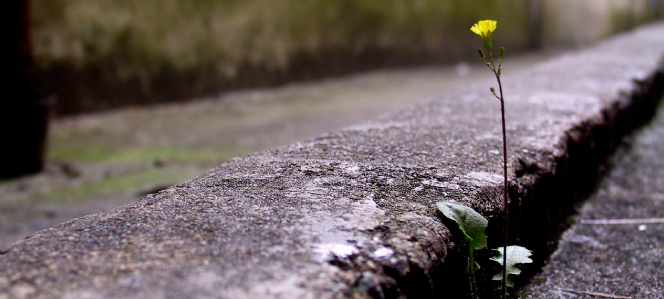I was listening to Orthodox theologian Fr. Tom Hopko last summer, and he shared a marvelous Latin quote from St. Benedict of Nursia:
“Age quod agis (do what you are doing).”
He also shared another pithy saying drawn from Zen Buddhism,
“When you eat, eat; when you walk, walk.”
Then he added this striking commentary (paraphrased from memory here),
“It is the universal consensus of the spiritual authors in the Orthodox tradition that those who refuse to embrace life’s present joys and trials as coming from the Hand of God, who constantly complain of their present circumstances and whine, “if only things were different!”; these will never grow in sanctity, but rather will forever remain mired in the stagnation of mediocrity, grumbling that their present situation is simply not conducive to practicing virtue.
In the Bible, “murmuring,” or as Jews say in Yiddish, “kvetching,” is a symptom of spiritual sickness. Jesus conquered the distorted mentality of “if only” once and for all in the Garden of Agony when he said, as he oscillated between present circumstances and the Father’s will, “My Father, if it is possible, let this cup pass me by. Nevertheless, let it be as you, not I, would have it.””
Archbishop Sheen once said the devil’s mantra always inverts Christ’s — “Not now, but later. What if? If only.”
Always Away
A theologian acquaintance of mine shared a comment his wife’s best friend made to her: “Boy your husband is away from home a lot doing his work!” She wholeheartedly agreed, he said, adding: “Yes! And even when he’s home, he’s away.” My friend said that when she shared that with him, it really hit him hard.
“I love my work, and my family, but she was absolutely right; it stung me to the heart. I found my work much easier to get lost in, and even seemingly easier to find God in. I used the “supporting my family” line to justify my perpetual absence and immersion in work, but knew deep down I was in part running from the challenges of family life. The tedium, the conflict, the cold pricklies.
My wife and I prayed about it that night, and I asked God for the grace to die to myself and live for my family first. It really helped me to come out of myself. After that time, when I came home, I was home. Or I should say I chose to be home every day as it was not always, is not always easy. And I came to discover God was there.”
TWO Great Books
This reminds me of what I consider to be among the finest works of spirituality ever written, both of which propose methods and means for renouncing our life’s “if onlys” and learning to practice being present to the demands of the present moment. The first is The Practice of the Presence of God, a collection of letters and transcribed sayings authored by the 17th century Carmelite monk, Brother Lawrence. The second is The Sacrament of the Present Moment, written by 18th century French Jesuit, Jean-Pierre de Caussade, and is a collection of lectures and retreats given to nuns.
I could read these two works hundreds of times, and still feel edified and challenged anew on each read. Though written long ago by men who lived as consecrated religious, and a bit challenging to read as they are collections of various reflections that sometimes repeat, they embody a universal vision that speaks, in a singular way, to one’s particular state in life in any time or place.
The Thrill That Makes Us Human
A professor who taught me Christian existentialism back in the 1990s once said to me (in paraphrase),
“Christians in the West have largely become repulsed by the tragic elements of life, and in so doing lose the opportunity, in facing tragedy, to experience the divine depths of faith and hope that spring from the corpse of Christ. They never get to know what it means to cling to God in the dark.
Running from darkness and tragedy, one loses that most precious gift, that feeling, that thrill that makes us most human: the joy at seeing the first rays of a long awaited dawn after a long, dark night. Instead, we keep our self-made night lights on.“
I’ll give Thomas Merton the last word:
“You do not need to know precisely what is happening, or exactly where it is all going. What you need is to recognize the possibilities and challenges offered by the present moment, and to embrace them with courage, faith and hope…It is better to find God on the threshold of despair than to risk our lives in a complacency. A life that is without problems may literally be more hopeless than one that always verges on despair.”
